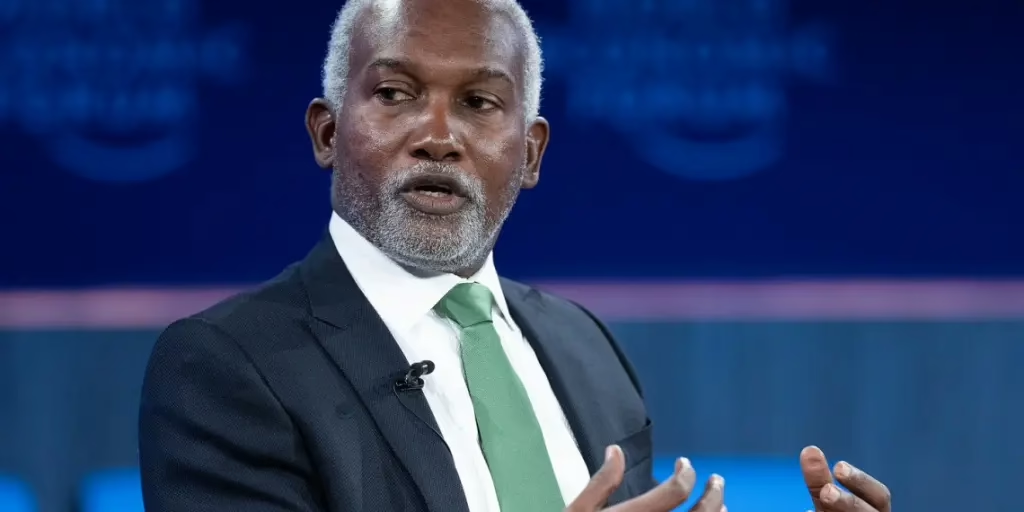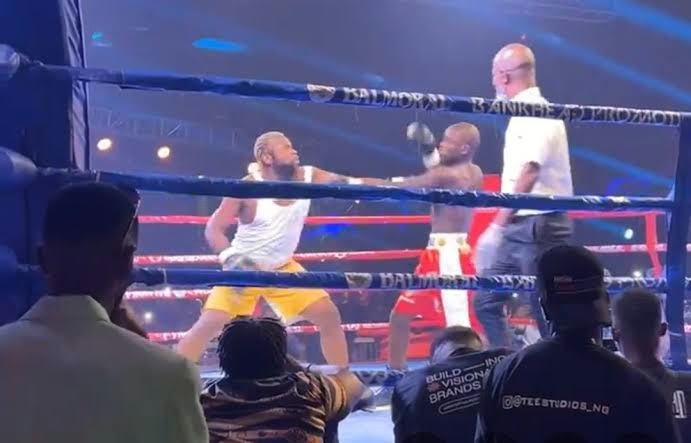Let us today deal with SuperCop, Abba Kyari and the tale of two jurisdictions’ conundrum. This is a serious constitutional, legal and political quandary matter.
Background to US’s Application for the Surrender of Abba Kyari
The Diplomatic Representative of the U.S. Embassy in Abuja had made a request for the surrender of 46 year old Abba Alhaji Kyari, over the pending charges against Abba Kyari in the US. This request is allegedly based on the relationship of Kyari with Ramon Olorunwa Abbas, a 37 year old self-confessed international fraudster, popularly known as Hushpuppi. Hushpuppi had alleged that he bribed Abba Kyari to arrest and jail Kelly Chibuzor Vincent, one of his rivals in Nigeria, following a dispute over a $1.1 million scam on a Qatari business man. Kyari had denied any wrongdoing.
Then NDLEA Appeared on the Scene
While on suspension over his role in the Hushpuppi’s case, Abba Kyari was arrested by the NDLEA in an alleged 17.5kg cocaine deal, and allegedly tampering with 25kg worth of cocaine. As investigation into the said NDLEA case was ongoing, Kyari applied for his bail on health grounds. The NDLEA then secured a court order, for further detention of Kyari and six others for 14 days. Indeed, immediately the Attorney-General of the Federation, Abubakar Malami, SAN, okayed Kyari’s extradition, NDLEA suddenly slapped an eight-count charge on him before the Federal High Court, Abuja. Was this a mere coincidence? Are some top level persons working hard to stall Kyari’s extradition, for fear he may be squeezed and made to squeal when he gets to the US? Can the ongoing investigation, subsisting court remand order and fresh charge stall the extradition of Abba Kyari to the United States of America? This is the kernel of our discourse today and next week.
What is Extradition?
Extradition is a process by which a person accused or convicted of a crime is officially transferred to the State where the person is either wanted for trial, or required to serve a sentence after being duly convicted by a court of law.
Nigeria has an Extradition Treaty with the US
Nigeria has an extradition agreement with the USA by virtue of an Extradition Treaty signed between the UK and the US, dated the 22nd December, 1931. The Treaty came into force on 24th June, 1935. By virtue of Article 16 of the Treaty, it was made applicable to all British protectorates of which Nigeria was one. Article 16 of the Treaty provides:
This Treaty shall apply in the same manner as if they were Possessions of His Britannic Majesty to the following British Protectorates, that is to say, the Bechuanaland Protectorate, Gambia Protectorate, Kenya Protectorate, Nigeria Protectorate, Northern Rhodesia, Northern Territories of the Gold Coast, Nyasaland, Sierra Leone Protectorate, Solomon Islands Protectorate, Somaliland Protectorate, Swaziland, Uganda Protectorate and Zanzibar, and to the following territories in respect of which a mandate on behalf of the League of Nations has been accepted by His Britannic Majesty, that is to say, Cameroons under British mandate, Togoland under British mandate, and the Tanganyika Territory”.
By Article 1 of the Treaty, the contracting parties agreed to deliver up to each other (under certain circumstances and conditions), persons who, being accused or convicted of any of the crimes or offences enumerated in Article 3, committed within the jurisdiction of the one Party, are found within the territory of the other Party. There are 27 offences enumerated in Article 3. The crimes which touch on the substance of this article, are the 18th and the 22nd: Obtaining money by false pretences; receiving any money, valuable security, or other property, knowing the same to have been stolen or unlawfully obtained and the offering, giving or receiving of bribes respectively. Some elements of the offence for which Abba Kyari was declared wanted in the United States of America include, obtaining money/assets through fraudulent means.
By Article 4 of the treaty, extradition shall not take place if the subject has already been tried and discharged, or punished for the offences over which he or she is wanted.
Article 5 states that extradition shall not take place if, after the commission of the offence or filing of criminal charges or conviction, exemption from prosecution was acquired by lapse of time according to the laws of the two countries involved.
By Article 6 of the Treaty, a fugitive criminal shall not be surrendered for extradition if the offence for which his extradition is sought is of a political nature, or if the subject could prove that the demand for the extradition was made in order to punish him for an offence of a political nature.
Article 9 of the treaty states that extradition shall only take place if the evidence is found to be sufficient according to the laws of the contracting party applied to, to justify the committal of the prisoner for trial, in case the crime or offence had been committed in the territory of such High Contracting Party. In the case of ANUEBUNWA v A.G., it was held that:
The whole essence of an extradition proceeding … is for the Applicant to establish by credible evidence, that is by producing to the Judge in the case of a fugitive criminal accused of an offence claimed to be an extradition offence, a warrant issued outside Nigeria authorising the arrest of the fugitive”.
Two doctrines come into play, when the extradition of a person is sought. There is the first- the doctrine of ‘Specialty’ or ‘Specialty Doctrine’. This doctrine requires that a person whose extradition is sought can only be tried for the crime for which his extradition was requested, and none other. Upon surrender of a fugitive, by the State where he sought refuge, the requesting State must only prosecute and convict such a person simply for the very crime for which his extradition was requested and for none other offence committed before the surrender of such fugitive. In the US case of States v Raucher (119 U.S. 407, 7S.Ct. 234, 30 L.Ed. 425(1886)), the court held that an accused shall not be arrested or tried for any other offence other than that for which he was charged in the extradition proceedings. In a situation where a State prosecutes a fugitive for an offence other than that which the fugitive was extradited, it will be tantamount to an abuse of the principles of extradition.
The second doctrine is the doctrine of ‘Double Criminality’. It states that before a person can be extradited for an offence, such extradition offence or the offence for which a person’s extradition is sought, must constitute an offence or crime in both jurisdictions. In the case of Collins v Loisel (259 U.S. 309, 42 S.Ct. 49, 66L.Ed.956 (1922)), the American Supreme Court held that the name by which the crime is described in the two countries need not be the same; nor must the punishment be the same. The requirement of double criminality is simply met, if the particular act charged is criminal in both jurisdictions
Restrictions on the Surrender of Fugitives Nigeria’s Extradition Act.
The Extradition Act, Cap E. 25, LFN, 2004, is the Act regulating the extradition of fugitive offenders/criminals in Nigeria. A “fugitive criminal” is defined in Section 21 of the Extradition Act as:
a. “Any person accused of an extradition offence committed within the jurisdiction of a country other than Nigeria; or
b. Any person, who, having been convicted of an extradition offence in a country other than Nigeria, is unlawfully at large before the expiration of a sentence imposed on him for that offence, being in either case a person who is, or is suspected of being, in Nigeria”.
Where an extradition request has been received by the Attorney- General, he is obliged to decide (on available information), if the surrender is precluded by any of the provisions of Section 3(1) to (7) of the Act. If the surrender of a fugitive criminal is not so precluded, he is to inform a Magistrate that an extradition request has been received by him and thus, require the Magistrate to deal with the case in accordance with the provisions of the Act. However, where the extradition of a fugitive criminal is so precluded by Section 3(1) to (7), then he need not inform the Magistrate of the receipt of any such request (Section 6 (2)).
In the case of George Udeozor v Federal Republic of Nigeria (2007) LPELR-CA/L/376/05, the court held:
“Nothing in the Act gives the court the powers to question the discretion of the Hon. Attorney-General in those matters, as the Hon. Attorney-General exercises his constitutional duty under Section 174 of the 1999 Constitution.”
However, the Attorney-General may, under Section 8(3), if he thinks fit, order the warrant cancelled and the fugitive released, if already arrested. Where a fugitive has been arrested, he shall, under Section 8(5) be brought before a Magistrate as soon as is feasible, and the Magistrate shall either remand him in custody or grant him bail, depending on the receipt of an order from the Attorney-General. This order shall notify the Magistrate that a request for the fugitive’s surrender has been received; or give an order for the cancellation of the warrant and the release of the fugitive.
Implications of the Nigeria-US Treaty Agreement
Nigeria and the US have an existing Extradition Agreement, for the surrender of persons wanted for prosecution or punishment. Section 3 of the Extradition Act stipulates instances where a person will not be surrendered for prosecution or punishment, notwithstanding the application for surrender by a foreign country. According to Section 3 of the said Act, a fugitive criminal shall not be surrendered, if the Attorney-General or a court dealing with the case is satisfied that the offence in respect of which his surrender is sought, is an offence of a political character; or that the request for his surrender, although purporting to be made in respect of an extradition crime, was in fact made for the purpose of prosecuting or punishing him on account of his race; religion, nationality or political opinions, or was otherwise not made in good faith or in the interests of justice; or that, if surrendered, he is likely to be prejudiced at his trial, or to be punished, detained or restricted in his personal liberty, by reason of his race, religion, nationality or political opinions.
A fugitive criminal shall also not be surrendered if the Attorney-General or a court dealing with the case is satisfied that the offence is of a trivial nature; or that due to the passage of time since the commission, of the offence, it would, be unjust or oppressive, or be too severe a punishment, to surrender the offender. (To be continued).
Serious and Trivial
“Action is the foundational key to all success.”-Pablo Picasso











Leave a Reply